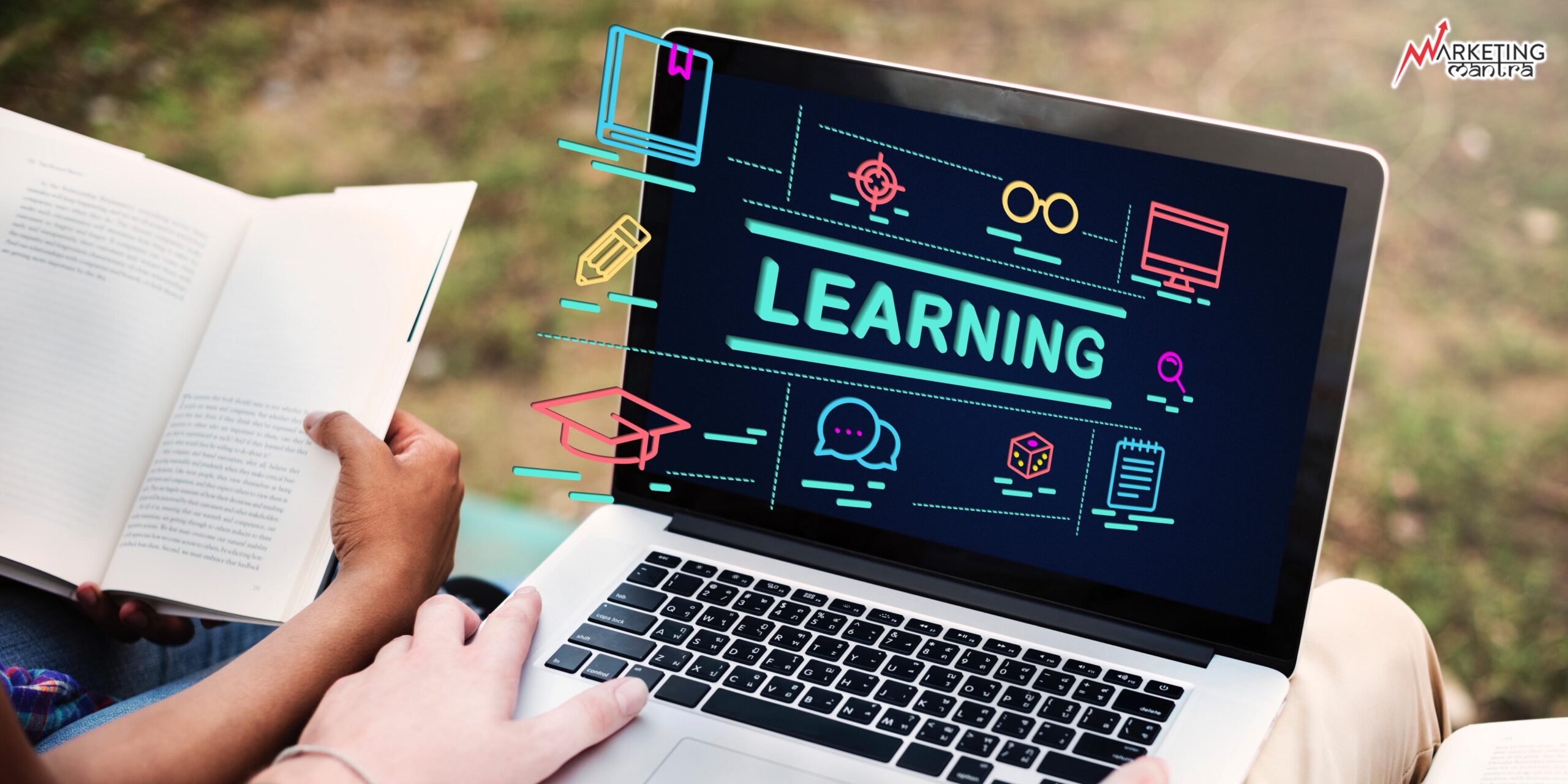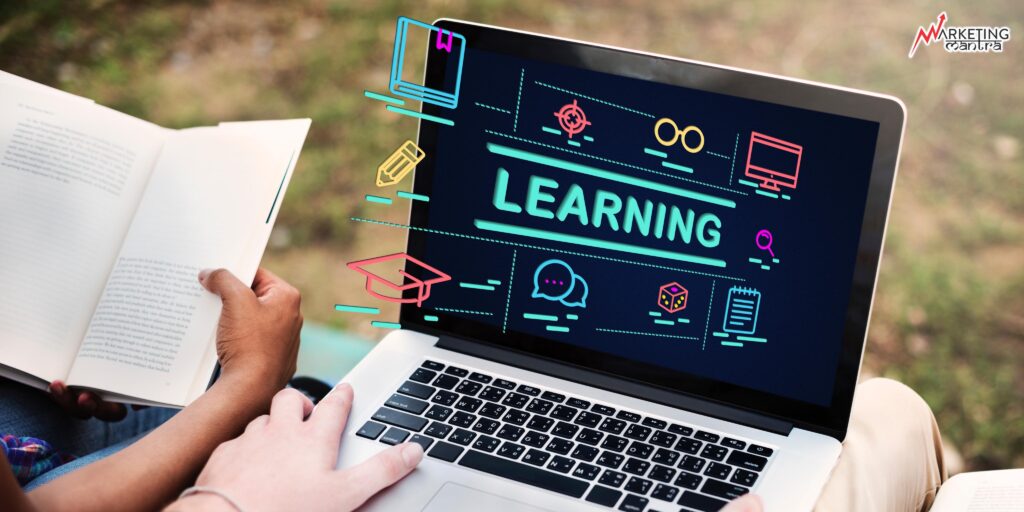In recent years, technological advancements have transformed the landscape of education, paving the way for innovative learning methods that transcend traditional classroom boundaries. One such method that has gained significant traction is eLearning, a term that encompasses a broad range of educational activities conducted electronically via the internet or other digital mediums.
eLearning, short for electronic learning, leverages digital tools and resources to deliver educational content, facilitate interaction between instructors and learners, and enable flexible learning experiences. From online courses and virtual classrooms to interactive multimedia presentations, eLearning offers a diverse array of opportunities for individuals to acquire knowledge and skills remotely, anytime and anywhere.
Key Features of eLearning
Accessibility:
One of the primary benefits of eLearning is its accessibility. Learners can access educational materials and participate in learning activities using various digital devices. Such as computers, tablets, and smartphones, without being constrained by geographical location or time restrictions.
Flexibility:
eLearning provides learners with flexibility in terms of pacing and scheduling. Unlike, traditional classroom settings with fixed schedules, eLearning allows individuals to learn at their own pace. Accommodating diverse learning styles and preferences.
Interactivity:
Interactive elements, such as quizzes, simulations, and multimedia content, enhance their engagement. It facilitate active learning in eLearning environments. Learners can interact with course content, participate in discussions, and collaborate with peers and instructors, fostering a dynamic and immersive learning experience.
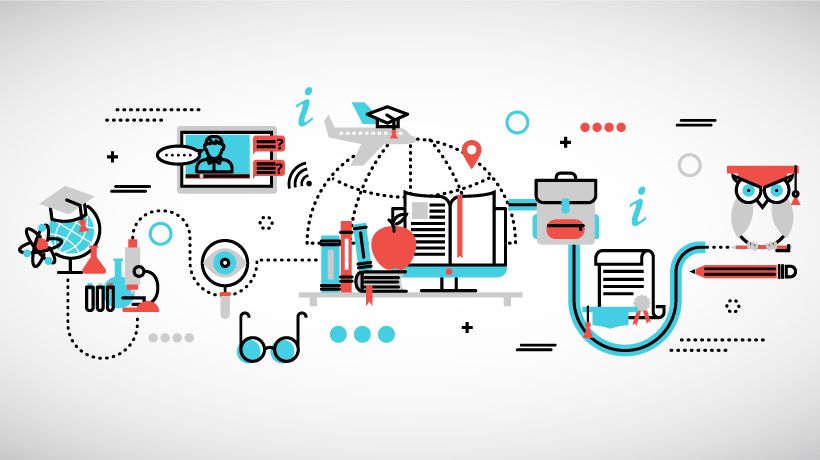
Customization:
eLearning platforms often offer personalized learning experiences tailored to individual learner needs and preferences. Through adaptive learning algorithms and customizable course content, learners can receive targeted instruction and support, optimizing their learning outcomes.
Scalability:
eLearning is scalable, enabling educational institutions, corporations, and organizations to reach a wider audience and deliver consistent learning experiences across diverse demographics and geographic locations.
Cost-effectiveness:
Compared to traditional face-to-face instruction, eLearning can be a cost-effective solution for both learners and educational providers.
The Evolution of Education in India
Education in India has undergone a significant transformation over the centuries, reflecting changes in societal values, technological advancements, and educational philosophies. Understanding the evolution of education in India provides valuable insights into its historical context, challenges faced, and opportunities for future development.
1. Traditional Education System
The traditional education system in India, rooted in ancient cultural and philosophical traditions, was characterized by:
Gurukul System:
In ancient India, education was primarily imparted in gurukuls, where students lived with their guru (teacher) in an ashram-like setting. This system emphasized holistic learning, moral values, and practical skills, with a strong focus on oral instruction and experiential learning.
Vedic and Sanskrit Education:
Education in ancient India revolved around the study of Vedic scriptures, Sanskrit language, mathematics, astronomy, and philosophy. Students were taught through memorization, recitation, and discussions, fostering a deep understanding of classical texts and spiritual concepts.
Caste-Based Education:
The traditional education system was hierarchical and caste-based, with access to education restricted to privileged castes, particularly Brahmins. This led to widespread disparities in educational opportunities based on social status and gender.
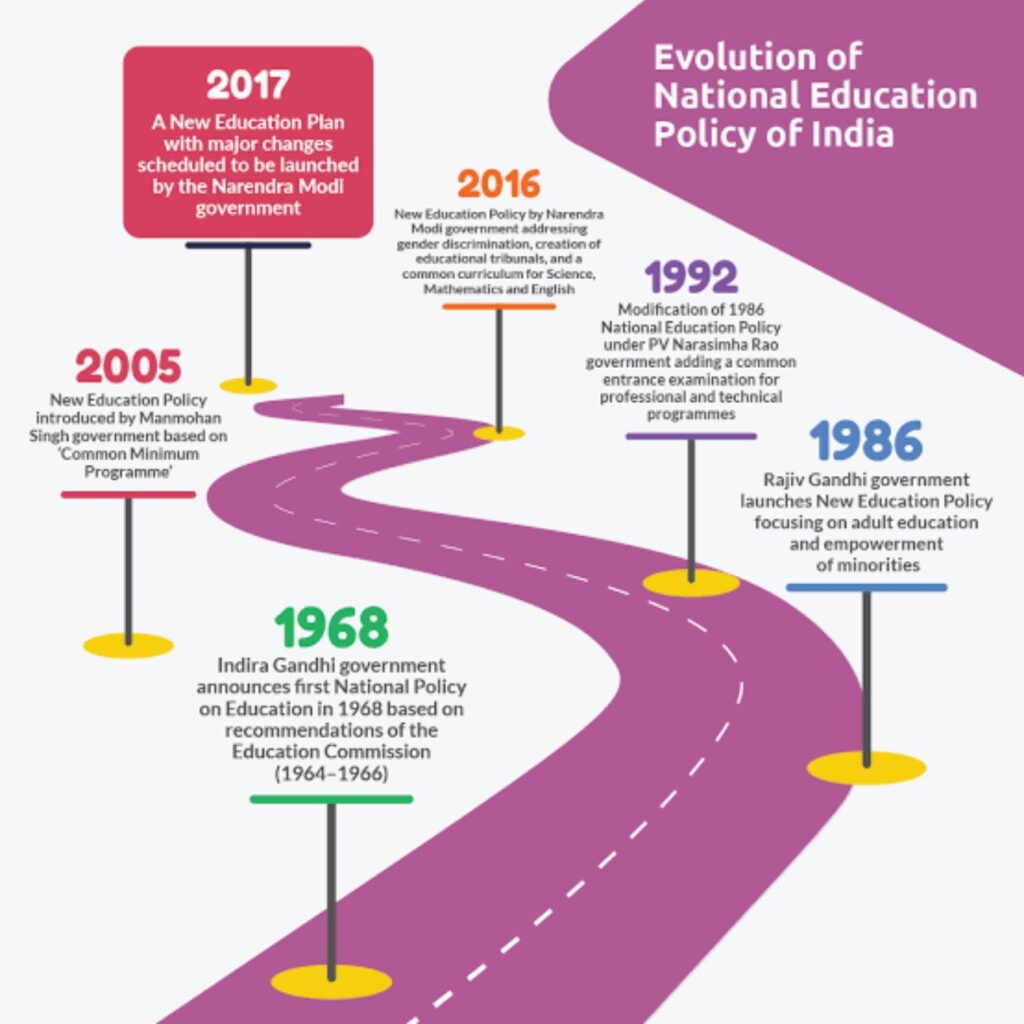
2. Challenges Faced
Despite its rich cultural heritage and historical significance, the traditional education system in India faced several challenges, including:
Lack of Access:
Historically, access to education was limited to a select few, primarily males from higher castes, while marginalized communities, including women, Dalits, and other disadvantaged groups, were often excluded from formal education opportunities.
Rote Learning:
The emphasis on rote memorization and traditional teaching methods hindered critical thinking, creativity, and practical skills development among students. This resulted in a disconnect between theoretical knowledge and real-world application.
Quality and Relevance:
The traditional education system often lacked relevance to contemporary societal needs and global trends, leading to a mismatch between educational outcomes and the demands of the modern workforce.
Socioeconomic Barriers:
Economic disparities and social inequalities perpetuated by the caste system and poverty posed significant barriers to accessing quality education for marginalized communities.
Language Divide:
The dominance of classical languages like Sanskrit as the medium of instruction marginalized non-Sanskrit-speaking communities and hindered linguistic diversity in education.
Rise of eLearning in India
In recent years, India has witnessed a remarkable surge in the adoption of eLearning, driven by technological advancements, increasing internet penetration, and changing educational paradigms. This shift towards digital learning has revolutionized the way education is delivered and accessed, offering numerous advantages over traditional classroom-based approaches.
1. Advantages of eLearning
eLearning offers a plethora of advantages that have contributed to its rising popularity in India, including:
Flexibility:
One of the most significant advantages of eLearning is its flexibility in terms of scheduling and pacing. Learners have the freedom to access educational content and participate in learning activities at their own convenience, eliminating the constraints of fixed schedules and geographical locations.
Accessibility:
eLearning transcends physical barriers, making education accessible to a broader audience, including individuals residing in remote areas or with physical disabilities. With the proliferation of internet-enabled devices and online platforms, learners can access educational resources anytime, anywhere, facilitating lifelong learning opportunities.
Cost-effectiveness:
Compared to traditional classroom-based education, eLearning is often more cost-effective for both learners and educational institutions. By eliminating the need for physical infrastructure, travel expenses, and printed materials, eLearning reduces overhead costs while maximizing resource utilization and scalability.
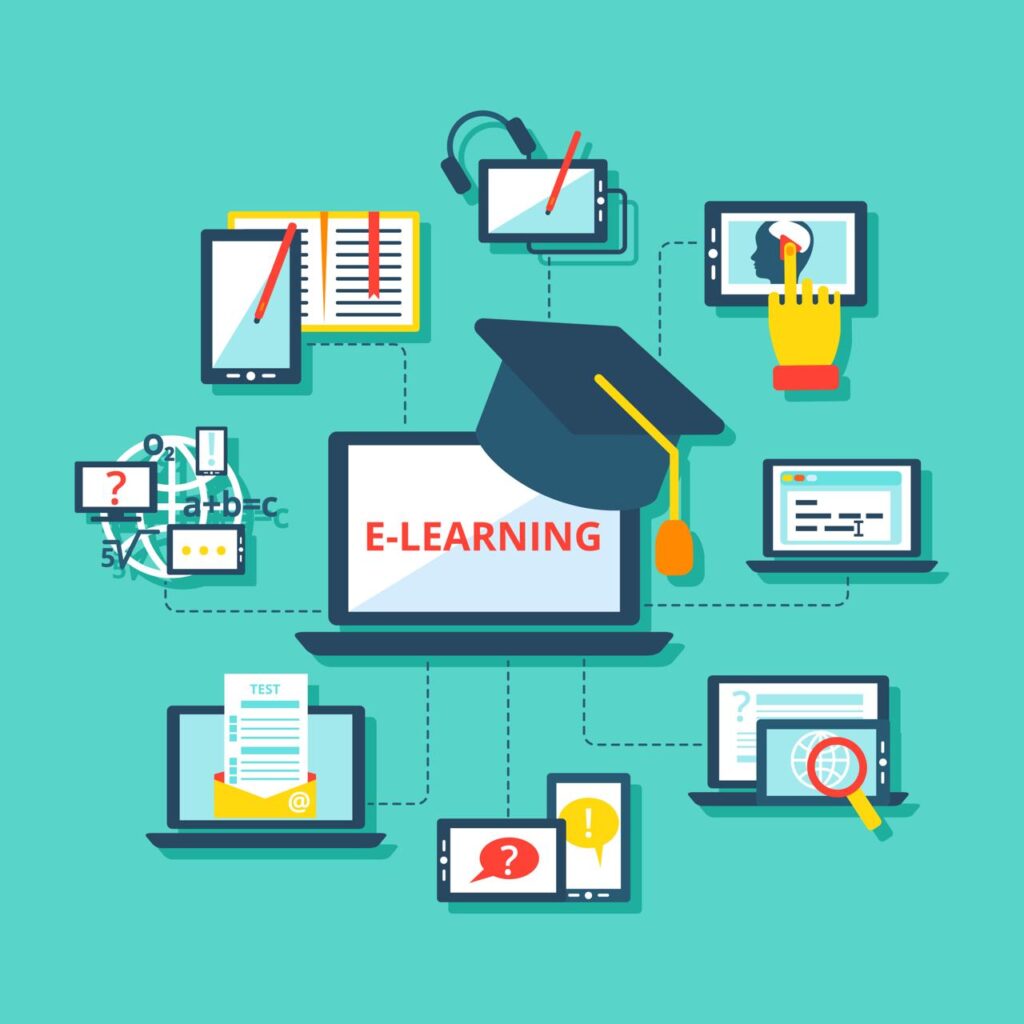
Personalized Learning:
eLearning platforms leverage adaptive learning algorithms and customizable course content to deliver personalized learning experiences tailored to individual learner needs and preferences. Through assessments, feedback mechanisms, and analytics, learners receive targeted instruction and support, optimizing their learning outcomes.
Interactivity and Engagement:
Interactive elements, such as multimedia content, simulations, quizzes, and collaborative tools, enhance engagement and facilitate active learning in eLearning environments.
2. Accessibility and Flexibility
Accessibility and flexibility are key drivers of eLearning’s growth in India, offering unparalleled opportunities for learners to overcome traditional barriers to education:
Geographical Accessibility:
eLearning enables learners from diverse geographic locations, including rural and remote areas, to access high-quality educational resources without the need to travel long distances or relocate.
Time Flexibility:
Traditional classroom-based education often conflicts with learners’ work schedules, familial responsibilities, or other commitments. eLearning allows learners to balance their academic pursuits with other aspects of their lives by providing flexibility in terms of study hours and pacing. While studying early in the morning, or late at night, or during weekends this eLearning is available 24/7. Learners can customize their learning schedules according to their preferences and constraints.
24/7 Accessibility:
Unlike traditional classroom settings with fixed hours of operation, eLearning platforms are accessible 24/7, enabling learners to study at their convenience, even outside regular business hours.
Development of eLearning
In the ever-evolving landscape of eLearning, certain platforms stand out as pioneers, offering innovative solutions and comprehensive resources to learners. Indiaelearn.org is one such platform, renowned for its commitment to providing quality education through online courses and interactive learning experiences.
1. Overview of Indiaelearn.org
Indiaelearn.org is a leading eLearning platform dedicated to delivering accessible, flexible, and high-quality education to learners across India and beyond. Established with the vision of democratizing education and fostering lifelong learning, Indiaelearn.org offers a diverse range of courses spanning various disciplines and skill levels.
2. Features and Courses Offered
Indiaelearn.org offers a wide array of features and courses designed to meet the diverse learning needs of its users. Some of the key features and courses offered include:
Interactive Learning Modules:
Indiaelearn.org incorporates interactive learning modules, multimedia content, and engaging activities to promote active learning and knowledge acquisition. From video lectures and quizzes to simulations and case studies, learners benefit from a dynamic and immersive learning experience.
Expert Faculty and Instructors:
Courses on Indiaelearn.org are developed and taught by experienced faculty members and subject matter experts renowned in their respective fields. Learners have the opportunity to learn from industry leaders, academic scholars, and practicing professionals, gaining insights and practical skills applicable to real-world scenarios.
Flexible Learning Options:
Indiaelearn.org offers flexible learning options, allowing learners to study at their own pace and convenience. Ethier accessing course materials asynchronously or participating in live webinars and virtual classrooms. Learners have the freedom to customize their learning schedules according to their preferences and commitments.
Diverse Course Catalog:
Indiaelearn.org boasts a diverse course catalog covering a wide range of disciplines, including but not limited to:
- Digital Marketing
- Social Media Marketing
- Search Engine Marketing
- Affiliate Marketing
- Email Marketing
- Content Marketing
- Blogging
- Email Marketing
Certification and Recognition:
Courses offered on Indiaelearn.org often include certification or accreditation from reputable institutions, accrediting bodies, or industry associations. Learners completing these courses receive recognized credentials, enhancing their credibility and marketability in their respective fields.
Transforming Education with Indiaelearn.org
In the dynamic landscape of education, platforms like Indiaelearn.org are playing a pivotal role in transforming traditional learning paradigms and empowering learners across India. By leveraging technology and innovative pedagogical approaches, Indiaelearn.org is bridging gaps in traditional education and democratizing access to quality learning opportunities.
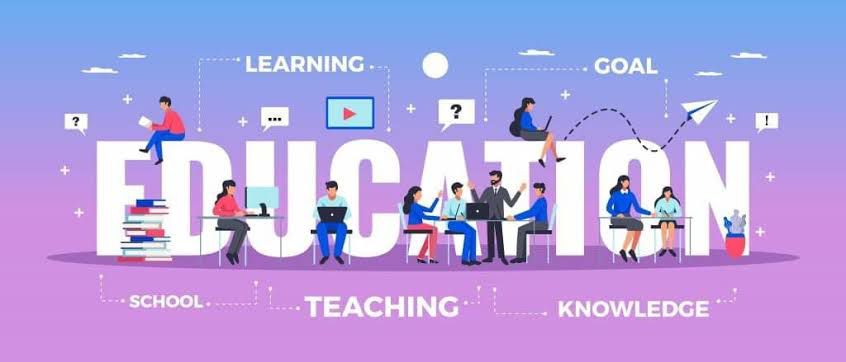
1. Bridging Gaps in Traditional Education
Indiaelearn.org addresses several gaps inherent in traditional education systems, including:
Accessibility:
Traditional education often faces accessibility challenges, particularly for learners residing in remote or underserved areas with limited access to educational institutions. Indiaelearn.org transcends geographical barriers, making quality education accessible to learners across India through online courses and resources.
Flexibility:
Traditional classroom-based education follows rigid schedules and structures, limiting flexibility for learners with diverse needs and commitments. Indiaelearn.org offers flexible learning options, allowing learners to study at their own pace and convenience, thereby accommodating various learning styles and schedules.
Quality and Relevance:
In traditional education systems, the quality and relevance of educational content may vary significantly, leading to disparities in learning outcomes. Indiaelearn.org ensures high-quality, up-to-date course content developed and delivered by experienced faculty and subject matter experts.
Inclusivity:
Traditional education systems may perpetuate socio-economic disparities and marginalize certain communities. Due to factors such as affordability, language barriers, and cultural biases.
2. Empowering Learners Across India
Indiaelearn.org empowers learners across India by:
Expanding Educational Access:
Indiaelearn.org expands educational access beyond traditional boundaries, enabling learners from rural, semi-urban, and urban areas to access quality learning resources. By leveraging technology and the internet, Indiaelearn.org ensures that educational opportunities are not limited by geographical constraints or infrastructure limitations.
Enhancing Employability:
With a focus on industry-relevant skills and certifications, Indiaelearn.org enhances learners’ employability and career prospects. By offering courses in emerging fields, vocational training, and professional development programs. Indiaelearn.org equips learners with the skills and knowledge demanded by today’s job market.
Fostering Lifelong Learning:
Indiaelearn.org fosters a culture of lifelong learning by providing a diverse range of courses catering to learners of all ages and backgrounds. Whether pursuing academic interests or acquiring new skills, or seeking career advancement. Indiaelearn.org offers continuous learning opportunities that empower individuals to adapt and thrive in a rapidly evolving world.
Building a Learning Community:
Indiaelearn.org fosters a vibrant learning community where learners can collaborate, share knowledge, and network with peers and experts. Through interactive forums, discussion boards, and collaborative projects, Indiaelearn.org encourages peer-to-peer learning and knowledge exchange, enriching the learning experience and fostering a sense of belonging among learners.
Success Stories
Success stories and testimonials offer compelling narratives that illustrate the transformative power of Indiaelearn.org in empowering learners and facilitating their educational and career journeys. Let’s explore some inspiring success stories and testimonials from individuals who have benefited from their experiences with Indiaelearn.org:
Success Story 1:
Name: Aisha Khan
Course: Digital Marketing Certification
Aisha Khan, a marketing professional based in Mumbai, shares her journey of enrolling in the Digital Marketing Certification program offered by Indiaelearn.org:
“I was looking to enhance my skills and stay updated with the latest trends in digital marketing to advance my career. Indiaelearn.org’s Digital Marketing Certification program exceeded my expectations. The course content was comprehensive, the instructors were knowledgeable, and the hands-on projects allowed me to apply what I learned in real-world scenarios. Thanks to Indiaelearn.org, I gained valuable insights and certifications that have opened doors to new opportunities in my career.”
Testimonial 1:
“Indiaelearn.org has been a game-changer for me. As a working professional with limited time, the flexibility of their courses allowed me to pursue my passion for learning without compromising my job or personal commitments. The quality of instruction and the support from the Indiaelearn.org team have been exceptional. I highly recommend their platform to anyone looking to upskill or explore new career paths.” – Rahul Sharma, Bangalore
Success Story 2:
Name: Priya Patel
Course: Affiliate Marketing
Priya Patel, a college student from Ahmedabad, shares her experience of taking the Affiliate Marketing course for Beginners course on Indiaelearn.org:
“I had always been curious about affiliate marketing but didn’t know where to start. Indiaelearn.org’s Affiliate Marketing course was the perfect introduction for beginners like me. The course structure was well-paced, and the interactive exercises made learning fun and engaging. With the guidance of the instructors and the support of the online community, I gained confidence in my skills and even developed my own mini-projects. Indiaelearn.org has ignited my passion for Affiliate marketing, and I’m excited to continue exploring the world of programming.”
Testimonial 2:
“I cannot thank Indiaelearn.org enough for the impact it has had on my educational journey. This platform has provided me with access to high-quality courses that have not only expanded my knowledge. It also helped me to some internships and job opportunities. The convenience of online learning combined with the expertise of their instructors has made all the difference in my academic and professional pursuits.” – Neha Gupta, Delhi
Conclusion
In conclusion, evolution of education in India has been marked by a remarkable shift towards eLearning. Platforms like Indiaelearn.org leading the way in transforming traditional learning paradigms and empowering learners across the country. Through innovative technology, flexible learning options, and a commitment to quality and inclusivity. Indiaelearn.org has bridged gaps in traditional education systems and democratized access to quality learning opportunities.
As Indiaelearn.org continues to expand its reach and impact, it remains dedicated to its mission of democratizing. Education and empowering learners to pursue their educational aspirations, enhance their skills, and thrive in a rapidly evolving world. With a focus on accessibility, flexibility, and learner-centricity, Indiaelearn.org stands as a beacon of innovation and excellence in the field of eLearning, shaping the future of education in India and beyond.
As we embark on this journey of lifelong learning and professional growth, let us embrace the transformative potential of eLearning and seize the opportunities it offers to unlock new horizons of knowledge, skill, and opportunity.
